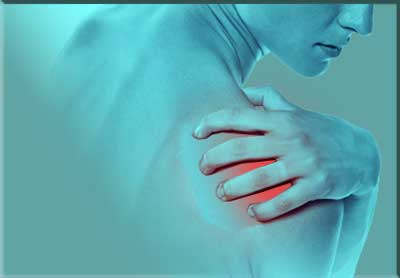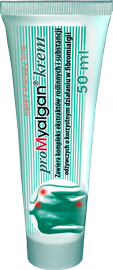How Tryptophan Functions in the Body
L-tryptophan converts into serotonin, primarily in the brain. Since serotonin is a neurotransmitter involved in controlling moods and appetite, tryptophan supplementation has been recommended for individuals suffering from a variety of conditions associated with decreased serotonin levels, including sleep disorders, depression and fibromyalgia, and eating disorders.[6-8]
It has been shown in human clinical studies that low levels of tryptophan contribute to insomnia.9 Increasing tryptophan may help to normalize sleep patterns.[10-12] It is known that raising tryptophan levels in the body may decrease cravings and binge eating – especially for carbohydrates – and help people lose weight.[13,14]
L-tryptophan serves as a precursor not only to serotonin, but also melatonin and niacin. Serotonin is a major neurotransmitter involved in many somatic and behavioral functions including mood, appetite and eating behavior, sleep, anxiety, and endocrine regulation.[6,15-17]
There are two possible sources for L-tryptophan: diet and tissue proteins, from which L-tryptophan has been recycled during protein turnover. Aging, chronic inflammatory diseases, and HIV infection are associated with tryptophan depletion, even in the absence of dietary tryptophan deficiency. An adult male needs 250 mg a day of tryptophan just to maintain nitrogen balance.[18] While a normal diet contains 1,000 to 1,500 mg of tryptophan per day,[19] the enzymatic breakdown of tryptophan increases with age,[20] and certain disease states can severely deplete tryptophan.
How Tryptophan is Metabolized in the Body
 There are three potential fates for L-tryptophan once ingested:
There are three potential fates for L-tryptophan once ingested:
● Incorporation into body tissue proteins.
● Conversion into serotonin (and melatonin).
● Conversion into indoleamines, carbon dioxide, water, adenosine triphosphate (ATP), and niacin.21
For every nutrient absorbed into the body, there are specific enzymes that convert the nutrient into other substances. There are two specific enzymes that can deprive the body of sufficient amounts of tryptophan. These enzymes are called L-tryptophan 2,3-dioxygenase (TDO) and indoleamine 2,3-dioxygenase (IDO).
The liver enzyme TDO is induced when plasma concentrations of L-tryptophan exceed those needed for conversion into serotonin and/or protein. This enzyme oxidizes surplus L-tryptophan into carbon dioxide, water, and ATP.22,23
The other tryptophan-degrading enzyme IDO is more insidious because it can degrade L-tryptophan even when circulating levels of L-tryptophan are low.23,24 This enzyme has been found outside the liver on macrophages and dendritic cells and is increased in pro-inflammatory states, HIV infection, and normal aging.25-30 Once the TDO or IDO enzymes act on tryptophan, it is no longer available for conversion to serotonin or incorporation into protein. Consuming large amounts of oral L-tryptophan will not generate more serotonin because more TDO will be induced to deplete the tryptophan.
Tryptophan and its metabolite 5-hydroxytryptophan (5-HTP) are taken up into the brain across the blood-brain barrier by a transport system that is active towards all the large neutral amino acids.31 The affinity of the various amino acids for the carrier is such that there is competition between the large neutral amino acids for entry into brain. In fact, the best predictor of a given meal’s effect on brain tryptophan-serotonin levels is the serum ratio of tryptophan to the pool of large neutral amino acids.32
What You Need to Know: Tryptophan |
|
● Serotonin is a brain biochemical that promotes restful sleep, well-being, and satiety. When serotonin levels are low, people often experience depression, anxiety, insomnia, and the urge to overeat. ● The amino acid tryptophan is needed to produce serotonin in the body. While foods contain some tryptophan, the diet may not provide enough tryptophan to make adequate amounts of serotonin. Additionally, enzymes that are influenced by inflammation and aging can break down tryptophan before it converts to serotonin. ● Individuals suffering from the adverse effects of low serotonin levels can now restore sleep, appetite control, and mood by supplementing with an advanced L-tryptophan formulation. This formula combines L-tryptophan with nutrients and herbs that help optimize its ability to convert to beneficial serotonin in order to counteract appetite and sleep disorders, and low mood. |
More clinically relevant, however, is that serotonin levels are enhanced by carbohydrate ingestion.[33] The reason is that the high amount of insulin released in response to carbohydrate ingestion accelerates the serum removal of valine, leucine, and isoleucine that compete against tryptophan for transport into the brain. Similarly, a higher percentage of protein in the diet slows serotonin elevation (by providing competing amino acids for the blood-brain barrier).34,35]
continuation in next column




 Tryptophan has been researched for sleep disorders for 30 years. Improvement of sleep normalcy has been noted38 at doses as low as 1,000 mg.19 Increased stage 4 sleep has been noted at even lower doses – as low as 250 mg tryptophan. 19 Significant improvement in obstructive sleep apnea, but not central sleep apnea, has been noted at doses of 2,500 mg at bedtime, with those experiencing the most severe apnea demonstrating the best response.39 While many sedative medications have opioid-like effects, L-tryptophan administration does not limit cognitive performance or inhibit arousal from sleep.40
Tryptophan has been researched for sleep disorders for 30 years. Improvement of sleep normalcy has been noted38 at doses as low as 1,000 mg.19 Increased stage 4 sleep has been noted at even lower doses – as low as 250 mg tryptophan. 19 Significant improvement in obstructive sleep apnea, but not central sleep apnea, has been noted at doses of 2,500 mg at bedtime, with those experiencing the most severe apnea demonstrating the best response.39 While many sedative medications have opioid-like effects, L-tryptophan administration does not limit cognitive performance or inhibit arousal from sleep.40 As previously mentioned, L-tryptophan is essential for the brain to synthesize serotonin, a neurotransmitter that has been shown to affect mood. Several studies have shown that acute tryptophan depletion can cause a depressive state in humans, especially patients who are in remission from depression.41,42 In a study of the effects of acute tryptophan depletion on healthy women and patients with bulimia nervosa, both groups were given amino acid mixtures to consume to decrease their plasma tryptophan levels. In both groups an increase in depression occurred.43
As previously mentioned, L-tryptophan is essential for the brain to synthesize serotonin, a neurotransmitter that has been shown to affect mood. Several studies have shown that acute tryptophan depletion can cause a depressive state in humans, especially patients who are in remission from depression.41,42 In a study of the effects of acute tryptophan depletion on healthy women and patients with bulimia nervosa, both groups were given amino acid mixtures to consume to decrease their plasma tryptophan levels. In both groups an increase in depression occurred.43 Increasing the L-tryptophan levels in blood plasma is also known to have an appetite-suppressing effect that mainly impacts carbohydrate consumption.52,53 Presumably the supplemental tryptophan would enhance the release of serotonin from brain neurons to diminish appetite for carbohydrates, which helps with loss of body weight. In addition, obese subjects are often insulin-resistant, and diminished insulin action may cause low plasma tryptophan ratios33 because of the peripheral effects of insulin on the uptake and utilization of other amino acids.
Increasing the L-tryptophan levels in blood plasma is also known to have an appetite-suppressing effect that mainly impacts carbohydrate consumption.52,53 Presumably the supplemental tryptophan would enhance the release of serotonin from brain neurons to diminish appetite for carbohydrates, which helps with loss of body weight. In addition, obese subjects are often insulin-resistant, and diminished insulin action may cause low plasma tryptophan ratios33 because of the peripheral effects of insulin on the uptake and utilization of other amino acids.


